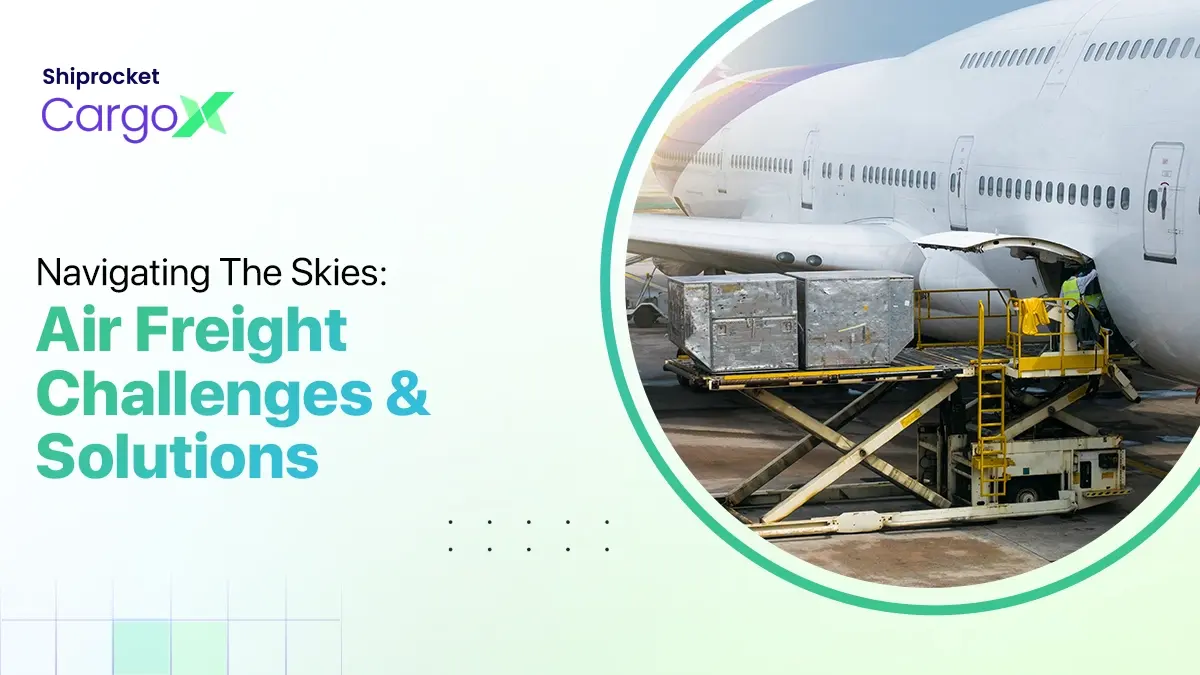A Guide to Shipping Duty And Taxes For eCommerce
Understanding shipping duties and taxes is essential for e-commerce businesses. These taxes can affect your international shipping costs and your customer’s experience. Shipping duties and taxes look complex at first, but they are the most important part of cross-border shipping.
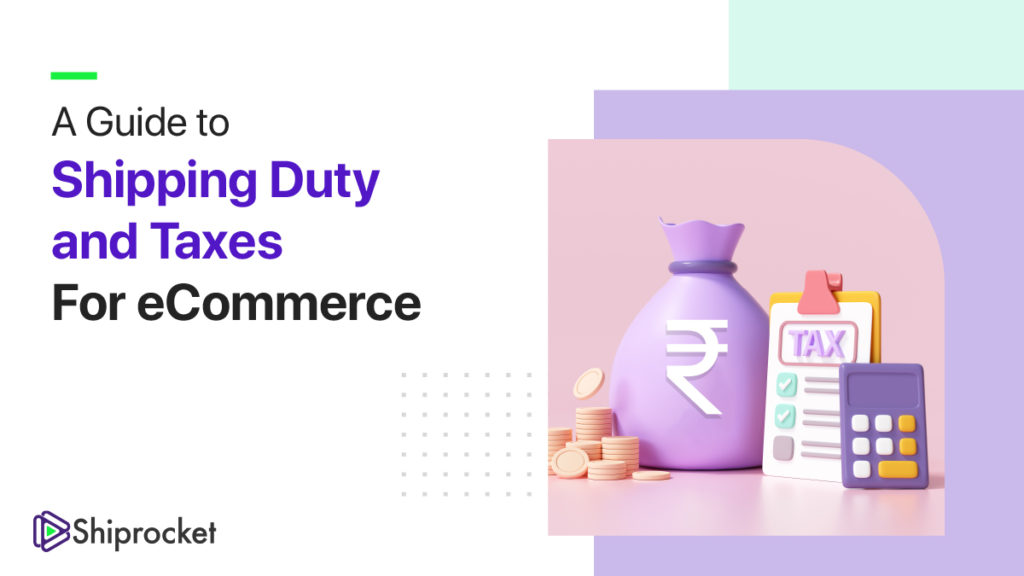
Most international shipments are subject to import duties plus additional import fees. To manage the shipping costs, eCommerce businesses must fully understand import duties and taxes, and how they are calculated for cross-border shipping. Generally, import duties are a type of tax imposed by governments on goods entering a country. Let’s start understanding shipping duty and taxes for international shipping.
Shipment Duties And Taxes
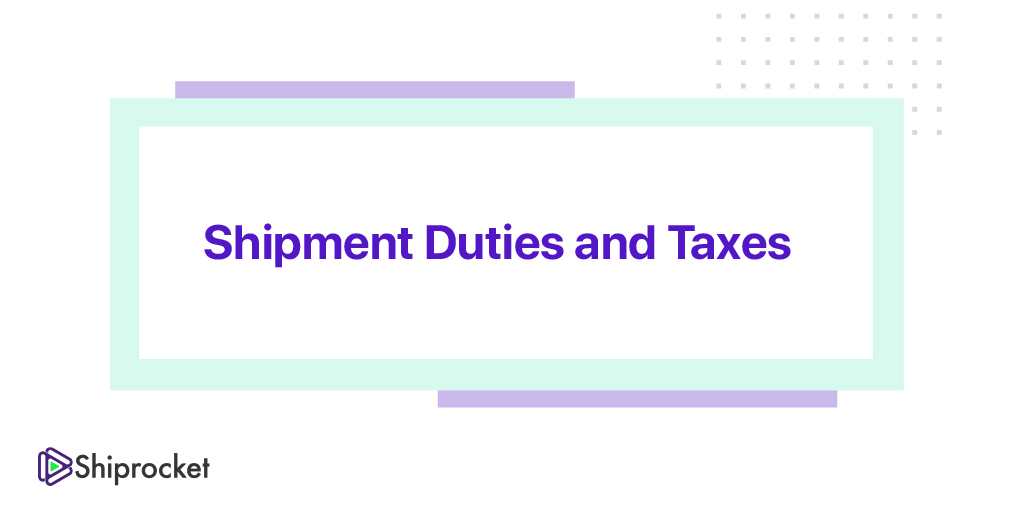
Similarly, a customs duty is a type of tax imposed on goods shipped across international borders. Governments levy customs duties to generate income, improve the flow of goods, as well as to protect the economy.
The customs duties and taxes are assessed using the shipping labels, invoice, and shipping documentation. This means that your total cost of shipping internationally, or the landed costs, depends on what you’re shipping, and where.
Shipping duties and taxes vary from country to country, eCommerce retailers should calculate shipping costs on a per shipment basis. This will help minimize customs fees, ensure timely cross-border deliveries, and a superior customer experience.
Most countries charge import duties and taxes on international shipments that must be paid before a package clears customs. The shipment is checked by the customs officer to determine if any duties are due. There are some documents that should be assessed on shipments that include:
- Product related documents
- Manufacturing details
- Trade agreements
- Country-specific guidelines & regulations
- Harmonized system code (HS)
Once the document submission is done, the customs officer will check for all duties and taxes based on this paperwork. Make sure that your documents include all the relevant information. that is required by the customs officers for assessing import duties.
Import Duties And Taxes
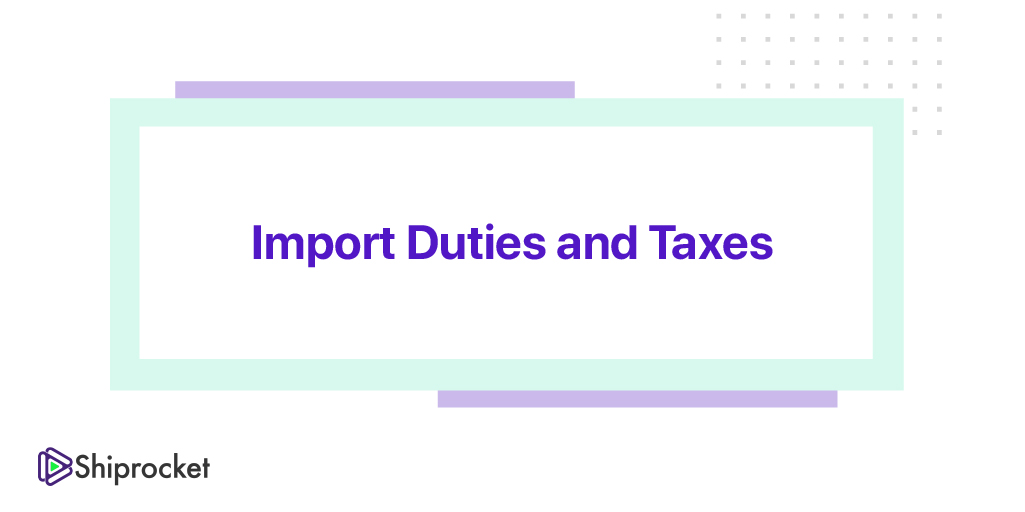
Import duties and taxes are calculated in two different ways which include:
- Cost of item
- Insurance
- Shipping
When calculating your shipment duties and taxes, you’ll have to know about a few key terms like:
Value Added Tax (VAT)
VAT is charged on consumers for making the purchase of any goods or services.
Goods and Services Tax (GST)
GST is a flat tax charged on the total percentage of the transaction value.

De Minimis Value
De Minimis Threshold Value depends on the specific country declared value. If it’s less than the value of an imported item, no duty or tax will be levied on that item.
Different methods are used for determining the shipment duty. This amount is assessed in two ways:
Free on Board (FOB)
The Free on Board is a taxable amount that applies to items shipped via sea freight. And if your items arrive by air, it won’t include the cost of transportation.
Cost, Insurance, and Freight (CIF)
This tax amount includes the cost of insurance, item value, and the total cost of transportation to the receiver.
Who Is Liable For Shipment Duties And Taxes?
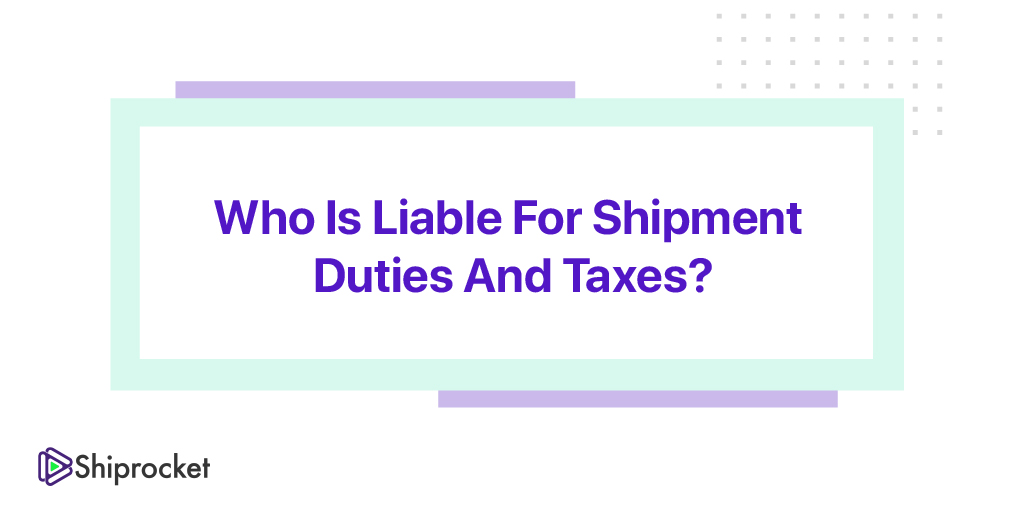
An importer pays duties and taxes along with the customer. All shipment duties and taxes must be paid before the shipped goods are released from customs.
Two common forms of customs payment options are DDU and DDP:
Deliver Duty Unpaid (DDU)
The Delivery Duty Unpaid process allows shipments to be forwarded to a customs broker who collects the required amount from the customer upon delivery. The DDU shipments can lead to delivery delays and result in added fees for customs brokers.
Deliver Duty Paid (DDP)
Customs duties and taxes are paid before the package arrives at customs. This means the shipment will not be charged any additional fees and will pass through customs. It also saves on tax and duty payments at checkout.
Final Words
Shipping duties and taxes are important for cross-border merchants who are facing complex guidelines, and regulations. Shiprocket X helps you calculate duties and taxes automatically, assemble the proper documentation, and ensure a satisfying & fast delivery, all while saving money.




